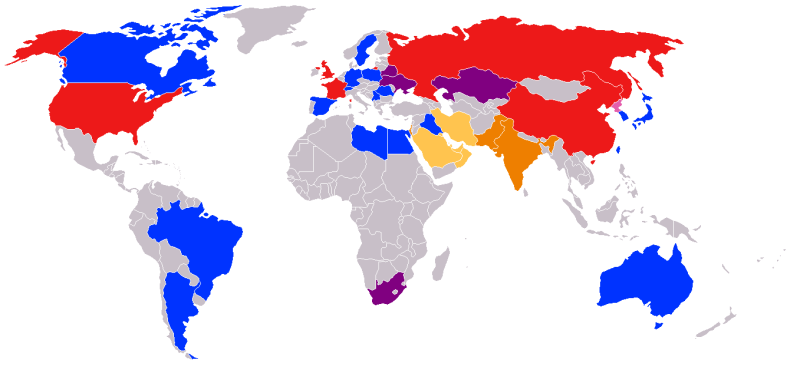Pakistani officials and defense related think tanks are not up to the challenges posed by the upcoming nuclear weapons ban talks held in the United Nations (UN) that propose complete disarmament of nuclear weapons. Nuclear powers, including the United States, Britain and France are among nearly 40 countries boycotting the first UN conference in more than 20 years on a global nuclear weapons ban treaty at the United Nations this week, a number that includes Pakistan.
More than 110 other countries are participating, but none of them belong to the group of countries that possess nuclear weapons. However that hasn’t stopped the talks from progressing. With the second round of negotiations is slated for June and July, when the draft text of the treaty would be considered, right now is the opportune time to consider how Pakistan among other nuclear nations will respond to the ban treaty that might impose restrictions on it without it having any input.
Speaking at a roundtable organised by the Centre for International Strategic Studies (CISS) titled “Nuclear ban treaty: debating the missing link” a foreign office official said that this “dangerous precedent” could lead to Fissile Material Cut-Off Treaty (FMCT) being negotiated out of Conference on Disarmament (CD), which he said was the appropriate forum for such deliberations. He recalled that there were “already lots of voices” complaining about the deadlock at the CD on FMCT.
While the overarching argument by all nuclear nations and their allies on this issue is the same – that the idea of total disarmament is idealistic and impractical, the specific concerns are different. Countries like the United States and the United Kingdom contend that there would be no way of ensuring that states like North Korea and Iran would abide by any such treaty, making any “complete disarmament” only superficially true until a conflict breaks out. Pakistan has different concerns; a ban on nuclear weapons would revert bilateral parity in South-Asia back to conventional weapons – where India holds a vast numerical advantage due to its size.
But the problem for Pakistan goes deeper. The UN said in a statement that measures for elimination will be decided in future conferences, the current one “would be aimed at contributing to the progressive stigmatisation of nuclear weapons.” A staggered a limited ban would still hurt Pakistan which would be locked in the existing asymmetrical imbalances over nuclear technology and stockpiles, putting Pakistani national interests at risk.
The foreign office needs to coordinate its efforts with other nuclear nations ahead of the proposed talks to ensure that this does not happen.






